Sponsors and Partners
Meet the Industry Professionals Serving as TRANSCAER Sponsors & Partners
Organizations that have a mission to promote the safe handling and transportation of hazardous materials develop a strong connection with TRANSCAER® as either sponsors or partners.
Sponsorship support allows TRANSCAER to conduct free hazmat training programs and offer hazmat training materials to emergency responders throughout the year.
Get Involved as a Sponsor
Is your organization interested in supporting TRANSCAER’s mission to help communities prepare for and respond to hazmat transportation incidents? Consider becoming a sponsor.
Sponsors
Formed in 2009, the AIHA Guideline Foundation oversees two program areas: (1) development of community exposure guidelines for chemical agents (also known as Emergency Response Planning Guidelines) and (2) oversight of AIHA's involvement in consensus-based standards development. As a 501(c)(3) nonprofit organization, the AIHA Guideline Foundation may also conduct research intended to educate the public.
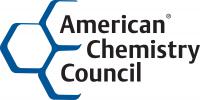
The American Chemistry Council represents a diverse set of companies engaged in the business of chemistry. ACC’s mission is to deliver value to our members through advocacy, using best-in-class member engagement, political advocacy, communications, and scientific research. ACC is committed to fostering progress in our economy, environment, and society. Every year, the chemistry industry invests tens of millions of dollars to ensure that the products making modern living possible are safe for you, our communities, and the environment. In addition to research initiatives, ACC programs focus on anticipating and preventing accidents, as well as educating the public about how to use our products safely.

American Petroleum Institute is a trade association representing all facets of the natural gas and oil industry. API was formed in 1919 as a standards-setting organization, whose mission is to promote safety across the industry globally and to influence public policy in support of a strong, viable U.S. oil and natural gas industry.
Association of American Railroads is the world’s leading railroad policy, research, standard setting, and technology organization that focuses on the safety and productivity of the U.S. freight rail industry. Working with elected officials and leaders in Washington, D.C., AAR advances sound public policy that supports the interests of the freight rail industry to ensure it will continue to meet America’s transportation needs today and tomorrow. As the standard setting organization for North America’s railroads, AAR establishes safety, security, and operating standards that provide seamless and safe operations across America’s private 140,000-mile freight rail network. Through its two subsidiaries, the Transportation Technology Center, Inc. (TTCI) and Railinc, AAR also supports continued research and development projects to enhance the safety, security, and efficiency of the railroad industry.
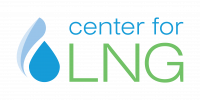
The Center for Liquefied Natural Gas advocates for public policies that advance the use of liquefied natural gas (LNG) and its export. A committee within the Natural Gas Supply Association (NGSA), CLNG represents the full LNG value chain, including LNG producers, shippers, terminal operators, and developers. CLNG provides its stakeholders with unique insight into the ways in which the vast potential of this abundant, clean, and versatile resource can be fully and safely realized.
CHEMTREC® is the leading source of 24/7 call center support and information during hazardous materials incidents. CHEMTREC is the single point of contact that connects emergency responders with everyone involved—manufacturers, shippers, consignees, carriers, and government agencies. CHEMTREC is equipped to handle any situation and any class of hazardous material.
CHEMTREC’s team of trained, experienced emergency service specialists provide emergency responders with the information they need to safely and effectively manage chemical shipping incidents, including guidebooks, training opportunities, and industry resources CHEMTREC’s service is complimentary for emergency responders.
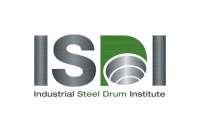
The Industrial Steel Drum Institute is a North American non-profit trade association representing manufacturers of steel drum containers in the United States, Canada, and Mexico. Its mission is to promote the common interests of its members through government relations, technical research, education and information exchange, media relations, and generic marketing programs. Its cooperative atmosphere enables industrial packaging manufacturers to realize operational and regulatory benefits that member companies cannot attain individually.

Renewable Fuels Association is the leading trade association for America’s ethanol industry, working to advance development, production, and use of ethanol as a beneficial renewable fuel. One of RFA’s mission is ensuring the safety of emergency responders, ethanol industry employees, and the communities in which ethanol is produced, transported, and used.
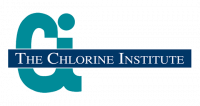
Established in 1924, The Chlorine Institute is the non-profit, technical trade association that represents about 190 companies worldwide. These member companies safely produce, distribute, and use chlorine, sodium and potassium hydroxides, and sodium hypochlorite; distribute and use hydrogen chloride; and distribute vinyl chloride.
Because chlorine is so widely transported and used, it has long been an accepted responsibility of chlorine producers, packagers, distributors and users to promote chlorine’s safe handling, secure transportation, and effective emergency response methods to protect public health and the environment.
As a TRANSCAER sponsor, CI maintains an aggressive emergency response outreach effort. Through TRANSCAER and with the help of partner railroads, CI keeps an extensive event schedule in order to fulfill its commitment to educational outreach. The events are free 8-hour training days that provide an overview of railroad safety and CI’s mission chemicals. This leads to hands-on training on various emergency response kits and leak mitigation scenarios. The hands-on workshops are a valuable resource for technician- and specialist-level training for emergency response personnel.
CHLOREP® (the Chlorine Emergency Plan) is The Chlorine Institute’s mutual aid program that provides a rapid and effective response to chlorine emergencies in the U.S. and Canada by ensuring that transportation service providers, end-users, first responders, hazmat teams, and others have quick access to accurate information and industry expertise. Supported by chlorine producers, packagers, and specially trained emergency response contractors, CHLOREP provides emergency responders with expert support via telephone within minutes. If needed, CHLOREP will rapidly deploy emergency equipment and personnel to the scene of any chlorine emergency in the U.S. or Canada. The CHLOREP network includes more than 90 response teams from 21 Chlorine Institute member companies across the U.S. and Canada, as well as 10 emergency response contractors who meet the Institute’s stringent performance requirements.

The Fertilizer Institute represents the nation’s fertilizer industry, which includes companies that are engaged in all aspects of the fertilizer supply chain. TFI’s full-time staff, based in Washington, D.C., serves its members through legislative, educational, technical, economic information, and public communication programs. TFI’s members play a key role in producing and distributing vital crop nutrients, such as nitrogen, phosphorus, and potassium. These products are used to replenish soils throughout the United States and elsewhere to facilitate the production of healthy and abundant supplies of food, fiber, and fuel. Fertilizer is a key ingredient in feeding a growing global population, which is expected to surpass 9.5 billion people by 2050. Half of all food grown around the world today is made possible through the use of fertilizer.

The Sulphur Institute is a non-profit trade association with members that transport sulphuric acid and molten Sulphur via tank car and tank truck throughout North America. Combined, acid and Sulphur are the fourth largest rail tank car movement by volume in North America. One of their key value drivers is training and education for the industry and that includes how to plan for and react to emergency response.
Become a TRANSCAER Partner
Are you a state association, emergency responder organization, or government agency that would like to partner with TRANSCAER to support continuous improvement and education in hazmat transportation, emergency preparedness, and response?
Partners

The National Volunteer Fire Council (NVFC) is the leading nonprofit membership association representing the interests of the volunteer fire, EMS, and rescue services. The NVFC serves as the voice of the volunteer in the national arena and provides invaluable resources, programs, education, and advocacy for first responders across the nation.
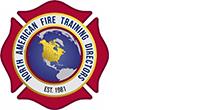
The North American Fire Training Directors (NAFTD) is a national organization comprised of fire training directors from North America, committed to be a primary point of contact for state, provincial and territorial fire training agencies as well as the federal government, while improving and establishing best practices as advocates for fire training, education, information and research. On an annual basis, the combined efforts of NAFTD members provide training and education programs to more than one million career and volunteer fire service personnel in the United States and Canada.
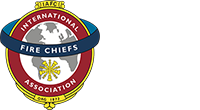
The International Association of Fire Chiefs represents the leadership of firefighters and emergency responders worldwide. Its members are the world's leading experts in firefighting, emergency medical services, terrorism response, hazardous materials spills, natural disasters, search and rescue, and public safety policy.

Operation Lifesaver, Inc. (OLI) is a nationally recognized mission driven rail safety education non-profit whose goal is to end collisions, deaths and injuries on and around railroad tracks and trains. Since 1972, OLI has been committed to preventing collisions, injuries and fatalities on and around railroad tracks and highway-rail grade crossings, with the support of public education programs in states across the U.S. Visit oli.org to schedule a presentation, find safety materials, become a volunteer and share public awareness campaigns, videos and more. Know the facts. Recognize the signs. Make good decisions and share the rail safety message. Together, we can #STOPTrackTragedies.
The Federal Railroad Administration was created by the Department of Transportation Act of 1966 and is concerned with intermodal transportation, and its mission is to enable the safe, reliable, and efficient movement of people and goods.

The mission of the Pipeline and Hazardous Materials Safety Administration is to protect people and the environment by advancing the safe transportation of energy and other hazardous materials that are essential to our daily lives. To do this, the agency establishes national policy, sets and enforces standards, educates, and conducts research to prevent incidents. PHMSA also prepares the public and first responders to reduce consequences if an incident does occur.
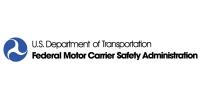
The Federal Motor Carrier Safety Administration contributes to ensuring safety in motor carrier operations through strong enforcement of safety regulations; targeting high-risk carriers and commercial motor vehicle drivers; improving safety information systems and commercial motor vehicle technologies; strengthening commercial motor vehicle equipment and operating standards; and increasing safety awareness. To accomplish these activities, the Administration works with Federal, State, and local enforcement agencies, the motor carrier industry, labor and safety interest groups, and others.
Find Training Events Near You
- United States
- Alabama
- Alaska
- Arizona
- Arkansas
- California
- Colorado
- Connecticut
- Delaware
- Florida
- Georgia
- Hawaii
- Idaho
- Illinois
- Indiana
- Iowa
- Kansas
- Kentucky
- Louisiana
- Maine
- Maryland
- Massachusetts
- Michigan
- Minnesota
- Mississippi
- Missouri
- Montana
- Nebraska
- Nevada
- New Hampshire
- New Jersey
- New Mexico
- New York
- North Carolina
- North Dakota
- Ohio
- Oklahoma
- Oregon
- Pennsylvania
- Rhode Island
- South Carolina
- South Dakota
- Tennessee
- Texas
- Utah
- Vermont
- Virginia
- Washington
- Washington, D.C.
- West Virginia
- Wisconsin
- Wyoming
- Canada
- Mexico
Sponsor Opportunities
As a sponsor, your organization gets exclusive opportunities to build relationships with emergency responders, industry and transportation companies.
Get Involved
Interested in getting involved with the TRANSCAER mission in your own community? Consider applying to become a regional or state coordinator.
Questions?
If you want to know more about TRANSCAER, find the answers to our most frequently asked questions.